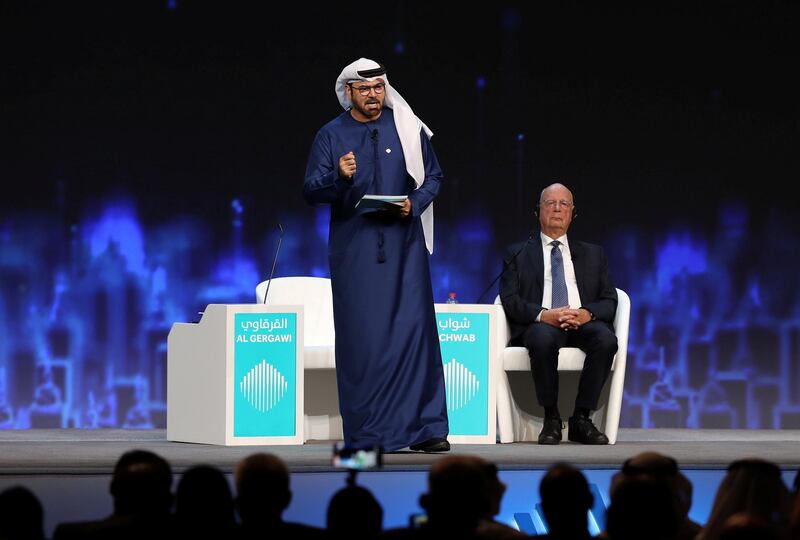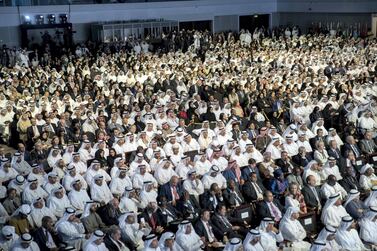Governments across the globe are failing to keep pace with the technological revolution and must adapt quickly to a changing world, the UAE's minister for the future has said.
Mohammed Al Gergawi, Minister of Cabinet Affairs and The Future, told the World Government Summit in Dubai that key developments - such as Hyperloop in the UAE - are being driven forward by the private sector as political powers lag behind.
Governments must now consider new legislation to wrest back control of new technology, like 3D printing and driverless cars, as well as the use of personal data, the minister said.
“The world has changed and now we are talking about the fourth industrial revolution but countries have not been able to keep up with these changes,” said Mr Al Gergawi.
“There is a global challenge to understand the role of government and private sector partnerships, who spend hugely on research and development.
“Transportation is being developed by the private sector, such as the Hyperloop.
“This is the same as in many other sectors.
“Even the space industry is shifting towards the private sector rather than governments.”
Mr Al Gergawi said "imagination and ideas" will be more important than oil and gas to future prosperity and said 45 per cent of jobs will change to the rise in artificial intelligence.
“Data will become the commodity of the future, with imagination and ideas - not oil and gas. So who owns these ideas will own the future.
“Around 45 per cent of jobs will change (because of artificial intelligence), but new jobs will open in creativity, the arts, music, content and design. They are jobs for our imagination,” he said.
Mr Al Gergawi said it was vital that governments take control of the future.
The investment chasm between the public and private sector can be found across the world, including in the United States.
The total investment of the private sector into technology research and development is more than $340 billion in the US, yet the US government spends just $54 billion, the summit heard.
“Governments must find solutions to manage these changes and lead change in future,” said Mr Al Gergawi.
“The private sector now knows more about us than any government around the world.
“They know what we eat, and when we eat. When we sleep and when we wake up, where we travel to, which destination and how we travel.
“They even know the number of our heart beats, so who owns this information, owns the future.
“This is how the role of government must change.”
Opportunities for government investment in new private sector partnerships will be central to how nations harness the potential from a new technological age, said the head of the World Economic Forum in his opening address.
As a platform for ideas and innovation, the WGS now rivals the Davos economic forum, held just weeks earlier, said Professor Klaus Schwab, who warned of rising threats to global stability.
“We all share a common future, but this is in danger of spinning out of control,” he said.
“The system is under threat by the speed of change and the fourth industrial revolution.
“It is not just technological progress, the world is in transformation and people do not want to be left behind.
“The consequences are dire.”
More than 4,000 speakers from around the world have been challenged to unite against the latest threats to society.
During the three-day Madinat Jumeirah summit, heads of state, business leaders and government ministers are taking part in a series of workshops, public plenary sessions and presentations.
Partnerships will be forged, and a sharing of ideas will help solve the most complex problems facing the planet in more than 200 sessions over the three days.
Professor Schwab called on technological innovation to be fully inclusive, and not neglect the developing world.
“People will not tolerate being left behind any longer,” he said.
“We have to move towards a new globalisation in line with the modern world.
“We cannot let it to continue to destroy our way of life, and it must be more inclusive.
“People should not wake up with nightmares, but with dreams.
“The summit can raise awareness of the depth of change, and allow governments to regain control and develop new partnerships with the private sector.
“The UAE is one of the countries providing this vision for the future.”








